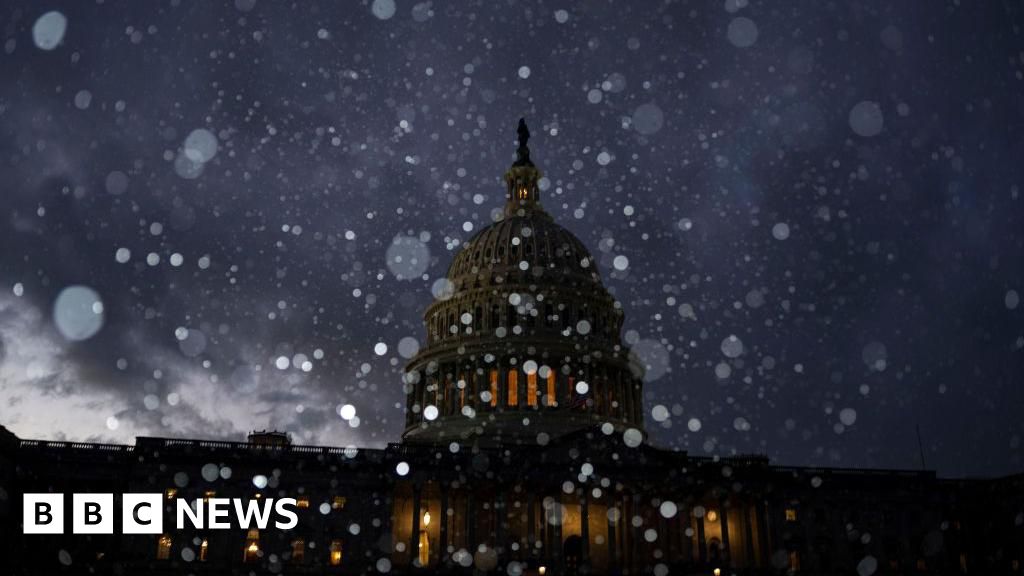Tens of millions of Americans are bracing for a huge winter storm that could bring the heaviest snowfall and coldest temperatures in over a decade.
The storm, which started in the middle of the US, will move east in the next couple of days, the National Weather Service (NWS) said.
Parts of the US not accustomed to severe cold, including Mississippi and Florida, have been warned to expect treacherous conditions.
Forecasters say the extreme weather is being caused by the polar vortex, an area of cold air that circulates around the Arctic.
“For some, this could be the heaviest snowfall in over a decade,” the National Oceanic and Atmospheric Administration said.
AccuWeather forecaster Dan DePodwin said: “This could lead to the coldest January for the US since 2011.”
He added that “temperatures that are well below historical average” could linger for a week.
Those low temperatures will be on the east coast as well, where the storm is expected to reach by Sunday evening.
In the central US, there will be “considerable disruptions to daily life” and “dangerous or impossible driving conditions and widespread closures” into Sunday, according to the NWS.
Some areas of Kansas and Indiana could see at least 8in (20.3cm) of snow.
In parts of the Midwest, blizzards are possible.
“Whiteout conditions will make travel extremely hazardous, with impassable roads and a high risk of motorists becoming stranded,” the NWS warned.
Sleet and freezing rain is forecast for Missouri, Illinois, and swathes of Kentucky and West Virginia.
As the storm moves east, millions more Americans will see record low temperatures, forecasters said.
Cities including Washington DC, Baltimore and Philadelphia are preparing for snowy and icy conditions from Sunday into Monday. Snowfall of between 5-12in could be recorded in parts of Virginia.
Also on Sunday, portions of the southern US including Arkansas, Louisiana and Mississippi may see severe thunderstorms.
Private meteorologist Ryan Maue said: “It’s going to be a mess, a potential disaster. This is something we haven’t seen in quite a while.”
American, Delta, Southwest and United airlines are waiving change fees for passengers because of the potential flight disruptions.



:max_bytes(150000):strip_icc()/GettyImages-1231124954-fac4ab8390b34b8690301febddb0a92b.jpg)


